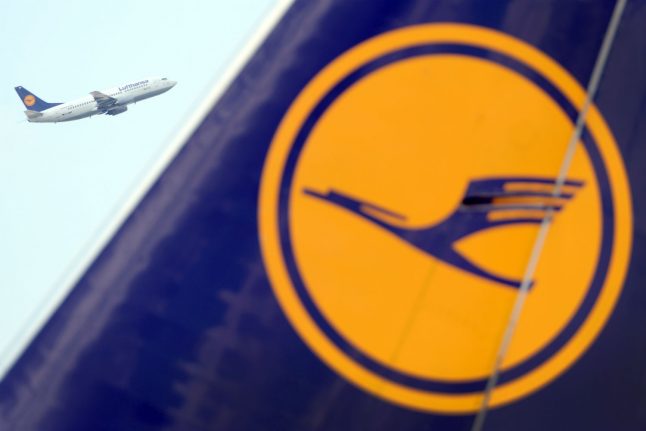In a statement, Lufthansa said its supervisory board was currently “unable to approve” the deal over fears of over-harsh conditions from EU competition watchdogs.
German media had previously reported the European Commission would demand the group give up valuable takeoff and landing rights at its Frankfurt and Munich hubs in exchange for Brussels' green light.
“Conditions currently indicated by the EU Commission… would lead to a weakening of the hub function at Lufthansa's home airports” and must be “analysed intensively,” the company said.
But it added that the supervisory board “continues to regard economic stabilisation fund (WSF) stabilisation measures as the only viable alternative for maintaining solvency”.
Since the pandemic hit Europe, the Lufthansa group — which also includes Brussels and Austrian Airlines and Swiss — has been bleeding one million euros per hour, with around 90 percent of its 760-aircraft fleet grounded.
Asked about the latest stumbling block, Chancellor Angela Merkel said that “negotiations are proceeding along standard lines, as they have been for the past few days”.
Berlin to climb aboard
Under plans announced Monday after fierce political wrangling, Berlin said it would take a 20-percent stake in the group, with an option to claim a further five percent plus one share to block hostile takeovers.
That would make the federal government Lufthansa's biggest shareholder.
On top of a total €5.7 billion in extra capital and €300 million to buy the shares at face value, public investment bank KfW would also lend Lufthansa €3 billion.
READ ALSO: Germany's Lufthansa to ramp up European flights in June
The company would agree to pay back much of the capital plus interest, while granting the state two seats on its supervisory board.
Hammering out the details of the package took so long because Merkel's conservatives were keen to minimise state control over the company's day-to-day running.
But their centre-left SPD junior partners wanted influence over issues like potential job cuts and environmental targets.
With the airline industry set for a long, slow return to cruising altitude after the coronavirus plunge, Lufthansa chief Carsten Spohr has said the group likely has 100 too many planes and, in turn, 10,000 superfluous positions out of almost 140,000 jobs worldwide.
Lufthansa is not the only airline turning to state aid to survive.
The EU Commission has already approved a €7 billion bailout for Air France-KLM via loans rather than a capital boost, with the Dutch state expected to add between two and four billion euros more.
Dogfight with Ryanair
German unions had welcomed Monday's offer from Berlin and attempted to warn Brussels off harsh conditions.
Gaps opened by a Lufthansa retreat from Frankfurt and Munich “could only be filled by dumping providers like Ryanair, who do not operate in a socially fair or sustainable way,” cabin crew union Ufo said.
Forcing the carrier to give up slots would represent “incomprehensible bossing-around” of the company, said Markus Söder, head of Merkel's Bavarian conservative CSU allies.
Even before Lufthansa's hesitation to brave potential demands from Brussels, others were heralding a challenge to what they saw as overly generous support from Berlin.
Ryanair boss Michael O'Leary said Tuesday that his huge no-frills Irish carrier would appeal against the planned part-nationalisation of Lufthansa, calling the deal “illegal state aid” that distorts competition.
As Germany has deployed vast fiscal resources to support workers and companies through the pandemic, some voices from around Europe have warned it could enjoy an unbeatable head start once the immediate crisis has passed.
READ ALSO: Ryanair plans to appeal Germany's Lufthansa rescue deal
By Tom Barfield



 Please whitelist us to continue reading.
Please whitelist us to continue reading.
Member comments